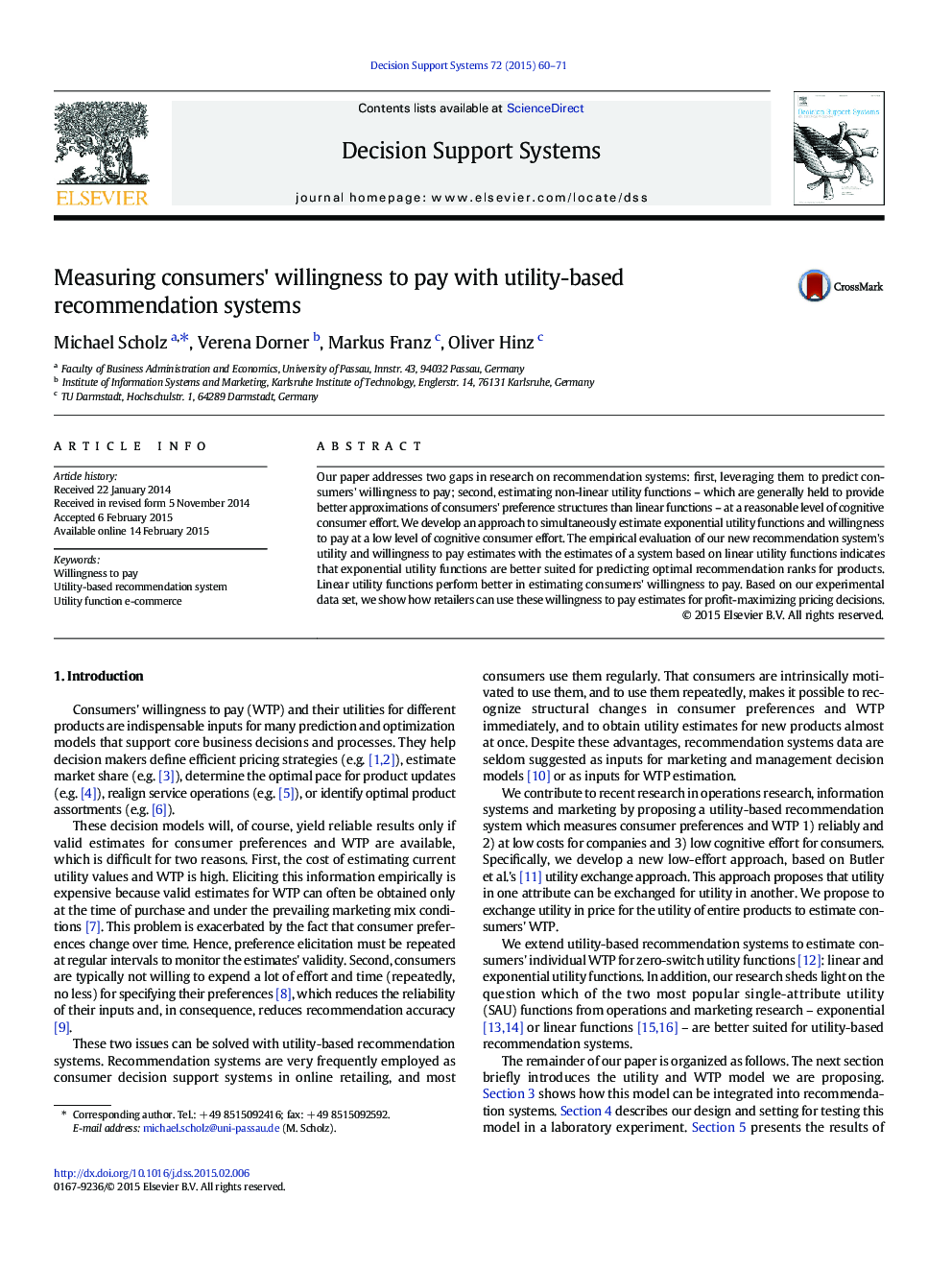| Article ID | Journal | Published Year | Pages | File Type |
|---|---|---|---|---|
| 554713 | Decision Support Systems | 2015 | 12 Pages |
•We measure consumers' willingness to pay with a low-effort recommendation system.•It provides companies with low-cost input for many business decision models.•We compare linear and exponential utility functions in terms of prediction accuracy.•Exponential utility functions are better suited for predicting recommendation ranks.•Linear utility functions perform better in estimating consumers' willingness to pay.
Our paper addresses two gaps in research on recommendation systems: first, leveraging them to predict consumers' willingness to pay; second, estimating non-linear utility functions – which are generally held to provide better approximations of consumers' preference structures than linear functions – at a reasonable level of cognitive consumer effort. We develop an approach to simultaneously estimate exponential utility functions and willingness to pay at a low level of cognitive consumer effort. The empirical evaluation of our new recommendation system's utility and willingness to pay estimates with the estimates of a system based on linear utility functions indicates that exponential utility functions are better suited for predicting optimal recommendation ranks for products. Linear utility functions perform better in estimating consumers' willingness to pay. Based on our experimental data set, we show how retailers can use these willingness to pay estimates for profit-maximizing pricing decisions.
